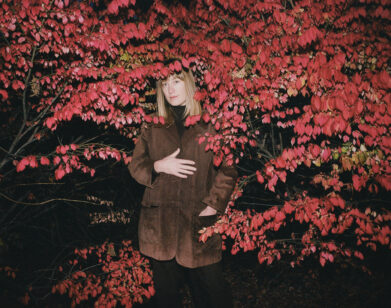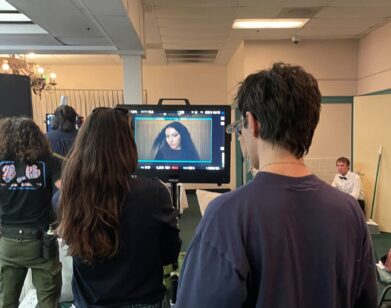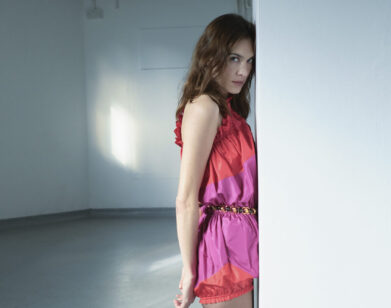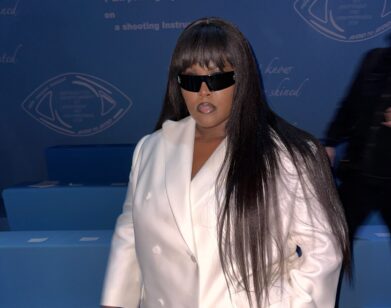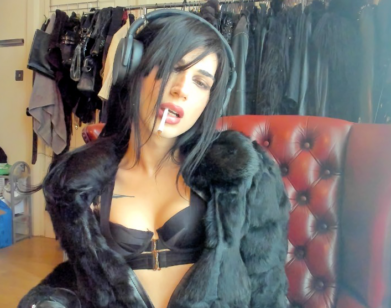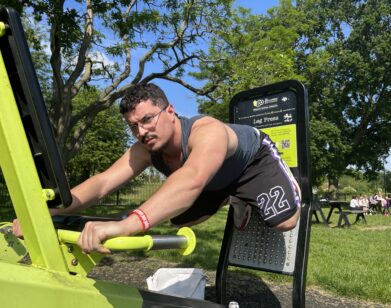Okay Kaya Has Come A Long Way From Guitar Center
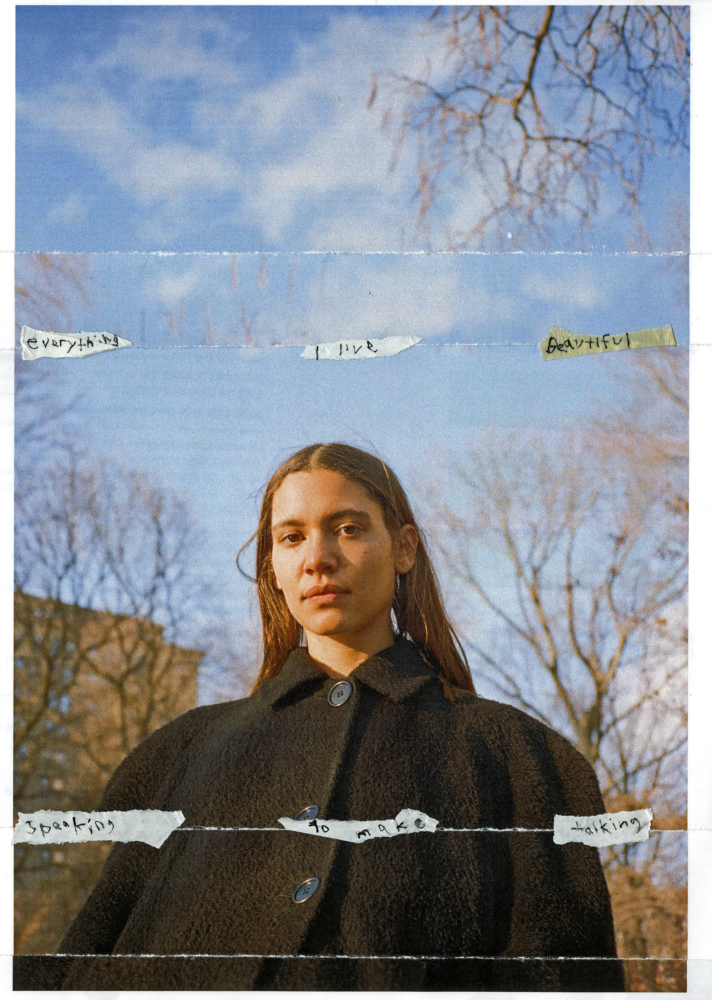
I meet Okay Kaya on a Thursday in January at lunchtime. She is tucked into the corner of the Marlton hotel, her legs jigsawed into the table in front of her. She’s eating bread, green olives, and some kind of whipped cheese. She has a softness and a shy economy with both her words and movements. Occasionally, she’ll stroke her hair back behind her ear, leaving a hand resting on her neck, other times using her fingertips as fidget toys.
Okay Kaya, a collapsed history: Kaya grew up in Norway, learned music as a kid, played in bands with her brother, sang in gospel choirs before studying modern dance at high school. She was scouted as a model straight out of school, so when she left school she also left home, and Norway. It was first to London, then to New York, where she’s been living for the last ten years.
A few years ago in a fugue; bored with modeling, bored of a voice telling her to do something other than stare at the walls of her apartment, she wandered up to the Guitar Center on 14th street and bought a guitar. She started writing songs and threw the recordings up on SoundCloud. She gained attention. “I was so extremely insecure,” she says. “I wanted it more than I would admit it.”
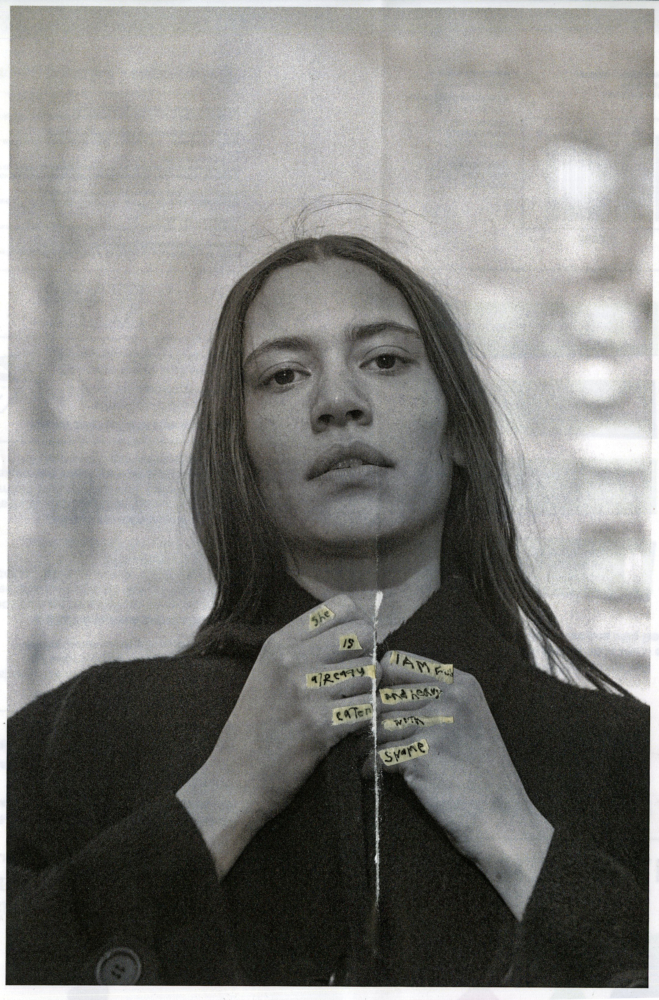
After some stops and starts, she recorded an album she called Both, which included “Dance Like U,” a song which talks with disarming lightness about the weight that falling in love carries. Her best songs operate with a similar mechanical impulse, placing opposing forces next to one other and letting them scrape together. “Ascend and Try Again,” from her new album Watch This Liquid Pour Itself, is another example. It’s a track that operates like an M.C. Escher print, spiraling impossibly up and down simultaneously, never quite finding purchase, never trying to. Her music is like that; it leaves you tessellating fragments that never quite fit together, requiring information that never comes. When she does appear, she appears in glimpses, brief moments of insight or candor unraveling momentarily, before the shield goes back up. “Asexual Wellbeing” occupies a different sort of contradictory space, the same sort The Pet Shop Boys managed, being both camp and and contained. Euphoric in defeat. Full but empty. Available but taken. Kaya lives “to make stuff in the days when everything seems to have a personality and is beautiful and important and worth it.”
We walk out into Washington Square Park. The late afternoon sun is low and casting a buttery light. A young man with first generation AirPods in his ears is pacing about, shouting to someone about his hustle. We look at the ground, trying not to smile too obviously.
———
RICHARD TURLEY: Do you dream? If so, what do you dream about?
OKAY KAYA: Everybody dreams sometimes. I have a recurring dream of waking up in a mildewy dewy tent my body on top of a root. It feels good. Another recurring dream is eating my twin. In the the dream I’m not covered in blood and guts. She’s already eaten. I am full and heavy with shame.
TURLEY: When are you at your happiest?
KAYA: Looking out windows or drinking coffee.
TURLEY: Whose approval matters?
KAYA: Mostly my own. I don’t like being misunderstood, so making things, talking, living can be tricky sometimes.
TURLEY: What makes you nervous?
KAYA: Physically speaking.
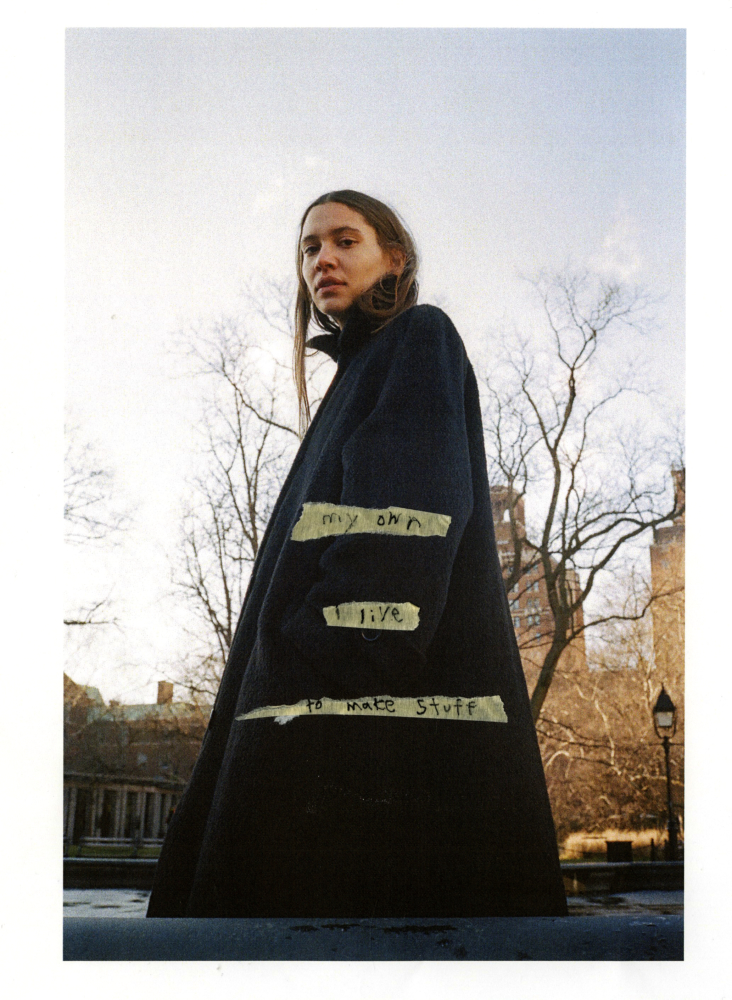
TURLEY: Do you have any regrets?
KAYA: No.
TURLEY: What’s left to do?
KAYA: I haven’t made a list.

